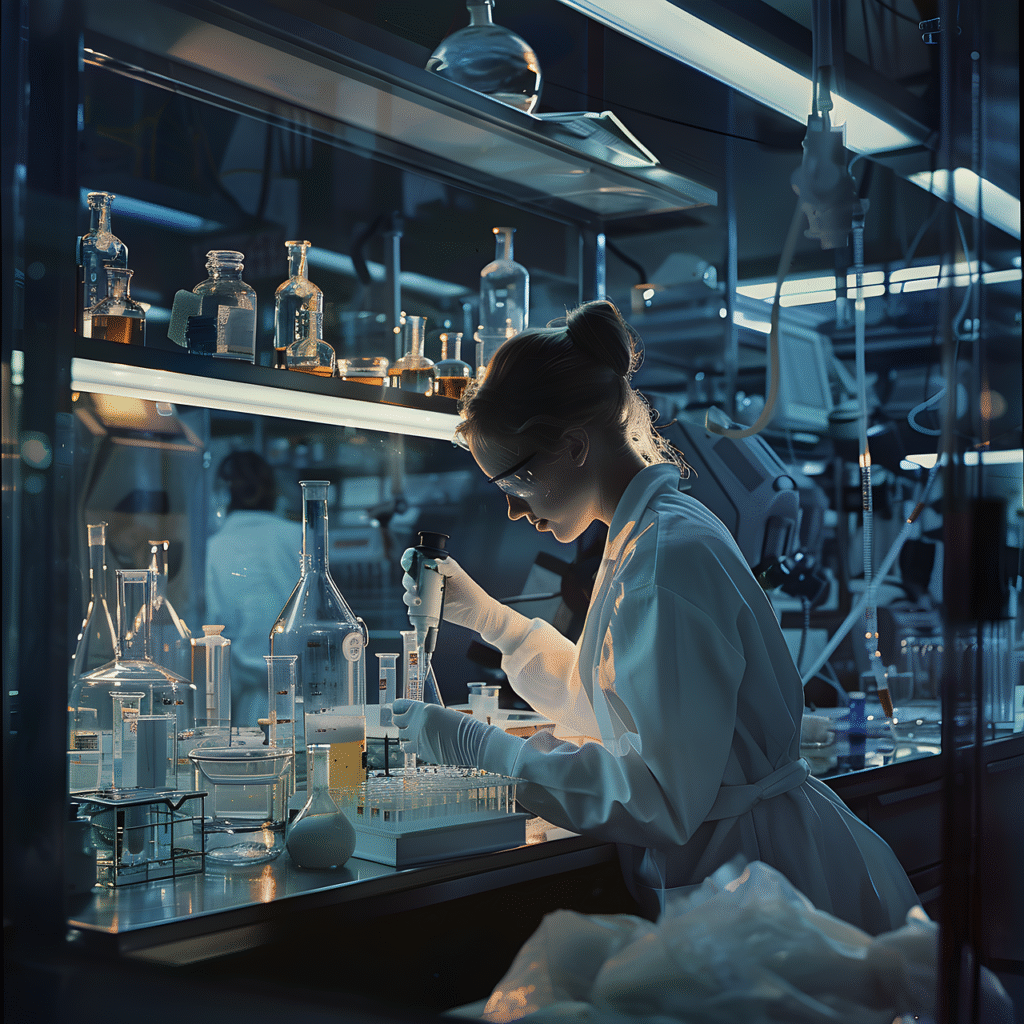Biotechnology and innovation are two concepts that go hand in hand. Moreover, since the Artificial Intelligence storm hit, advances in research and the achievement of results have continued to occur.

We could define biotechnology as the development and controlled manipulation of products, whether living cells or cellular components, for specific purposes. An example would be genetically modified foods.
Biotechnological advances are already part of our daily lives; we can see them in supermarkets, pharmacies, and farms. But there is still a long way to go, as biotechnology is expected to play a crucial role in the society of the future.
Uses and applications of biotechnology in the world
Biofuels, waste treatment, reducing atmospheric emissions, bioenergy, and improving energy efficiency are just some of the most common uses offered by the biotechnology sector.
Industry
Industrial biotechnology is dedicated to optimizing industrial processes, creating clean and environmentally friendly technologies that can replace polluting technologies.
For example, the production of biological enzymes stands out, which can digest pollutants into harmless chemicals and then die. Specifically, this could be the production of cosmetics and creams, which use enzymes as an added ingredient and, in turn, prevent skin damage caused by the sun and pollution.
Health and medicine
We are looking at one of the most well-known applications. Surely the clearest example is the generation of new medications and therapies. The development of insulin, growth hormone, and molecular diagnostics is one of the most notable milestones in biotechnology.
The reference to biotechnology in the field of health involves the combination of biological information with computer technology or bioinformatics.
Feeding
In addition to the genetically modified foods mentioned above, other products have been developed, such as WEMA corn. This type of crop is resistant to drought and certain insects, an innovation that is being used in countries like Kenya to combat drought. In the words of Agustín Trapero, a renowned sommelier, he already predicts this problem: “There are regions that are experiencing more oppressive summers that are destroying raw materials.”
In short, biotechnology can modify the genes of plants, animals, and microorganisms, something the Food and Agriculture Organization of the United Nations (FAO) welcomes.
For its part, the World Health Organization also supports biotech foods, ensuring that these products have passed safety assessments and pose no health risks.
Environment
In this case, we’ll talk about “white biotechnology .” This is a branch of biotechnology that focuses on optimizing industrial processes. To do so, it seeks to replace polluting technologies with cleaner, more environmentally friendly ones.
One of the main advances is the use of living organisms and enzymes, or biocatalysts, which are applied in virtually all industries, including pharmaceuticals, food, chemicals, textiles, detergents, etc.
Bioplastics, plastics that are biodegradable and essentially derived from renewable resources, such as starch and cellulose, are also another of the most prominent examples of the use of biotechnology.
Or biofuels, which come from a renewable source, such as biomass. This is the organic matter that makes up all living beings, their products, and waste. One of the main biofuels is firewood, obtained from wood.
Agriculture
We also see the influence of biotechnology in agriculture, especially in improving the quantity and quality of crops.
Among the main examples of the use of biotechnology in agriculture is “sustainable agriculture,” through which crops can be modified to be more resistant to drought and other adverse weather conditions.
Another major use in this field is the production of healthier foods. For example, scientists can use genetic engineering to produce more nutrient-dense crops, such as Golden Rice.
The revolution of the future is already a reality
Biotechnology has proven to be much more than a technological breakthrough; it has become a platform that redefines the way industries produce, innovate, and adapt to changes in the global environment.
From breeding climate-resistant crops to creating innovative, life-saving medicines, biotechnology is creating new industries and transforming existing ones.
Looking to the future, biotechnology is emerging as the driving force of a new industrial revolution. Not only are we witnessing the emergence of entirely new industries, such as 3D bioprinting of human tissue or genetic engineering applied to food production, but we are also seeing traditional industries adapt and evolve to incorporate these advances.
And the future looks even brighter. In the coming decades, we’re likely to see even greater convergence between biotechnology and other areas of knowledge, such as artificial intelligence and robotics.
This merger will allow for further optimization of biotechnology processes, increasing their efficiency and accessibility. The use of AI-based systems for predicting and controlling agricultural pests, or the combination of biotechnology with robotics for precision medical interventions, are just some of the applications already being researched and are only the beginning of an unprecedented change, of which we are already participating.
